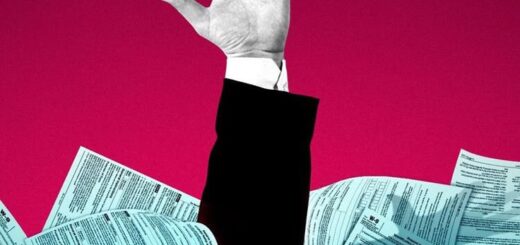Mass Job Loss is inevitable except…….

Much has been said and understandably so about the need to safeguard or protect jobs both in the interim and in the long term after the COVID-19 pandemic. Employers of labour are not sadists or trigger happy when it comes to making the hard decision to part ways with employees. However hard business decisions as these are seldom unavoidable if the needful is not done. A stitch in time they say saves nine.
The devastating effects of the long-standing inclement environment for doing business in Nigeria has been over flogged. This has been compounded by the COVID-19 pandemic and the follow-up effect of the unproductive lockdown which understandably was necessary to reign in the blight and protect lives.
In Lagos State, the majority of businesses are now in their fifth week of business shutdown and four weeks on in the FCT and Ogun State while the impairment of business varies in other states.
While businesses remain passive and unproductive with attendant mass losses of revenue, overhead costs remained. Wages obligations to workers and several statutory payments without respite remained constant.
The government had spoken well in urging businesses to continue to bear the brunt without recourse to staff rationalization. Nigeria Employers’ Consultative Association (NECA) as the most representative body for Organised businesses and Employers of labour in Nigeria had equally added its voice by advising its members to continue to keep the full complements of its workers for as long as it is bearable and as far as economic indices will permit.
The truth is that five weeks of the economic and business shutdown has overstretched the limits and businesses are beginning to buckle under the weight of the burden it is carrying without corresponding productivity from workers and necessary support from Government. This is the reality today.
BALANCING PROTECTION OF LIVES WITH ECONOMIC INTERESTS
Balancing the protection of lives with economic interests should, ordinarily not be difficult. While protection of life should take precedence, the need to protect the economic foundation of the nation cannot be discounted as the economy will ultimately sustain life. While the Government take decisive steps to protect lives, efforts should also be made to keep productive activities going.
Without delicately balancing the scale, the consequential negative effects of the Pandemic will not only include unimaginable loss of lives, massive job losses and heightened insecurity, it might also lead to unnecessary social revolt.
GOVERNMENT DECISIVE ACTION ON STIMULUS PACKAGE AND SUPPORTS TO BUSINESSES
While a lot has been said on the intervention of the Federal Government and various coordinated efforts of other Stakeholders, more decisive action on stimulus to businesses need to be taken. The announced stimulus, to a large extent has not addressed the critical needs of businesses that will guarantee sustainability and protection of jobs.
Much more can still be done NOW, not belatedly, to save jobs in Nigeria. More direct intervention such as:
- direct wage or income support,
- wage subsidies,
- tax credits or tax deferrals,
- short-term work schemes,
- moratoriums on loan payments and
- the establishment of a Coronavirus Job Retention Scheme, where Government pays up to 60% of private sector salaries until June as long as workers are not laid off, as done in other climes i.e. UK, France, and Denmark, etc would reduce the negative impact on businesses and slow the rate of job loss.
RELAXATION OF LOCKDOWN WITH REGULATIONS TO PROTECT LIVES
While it is desirable for the lock-down to be relaxed and not totally removed, it is important to state that mismanagement of the lockdown relaxation process might spell doom for the gains already achieved.
It is worthy of note that the main objective of the lock-down was to contain and curtail the spread of the Virus. While the recent upsurge in a number of confirmed cases might be attributed to increased spread of the Virus and also increased testing capacity of the Nation, the need to manage the socio-economic impact of current lock-down cannot be over-emphasised. With a large population of the country in the informal sector and many surviving on daily wages, the continued total lockdown has the tendency to further cripple businesses, hasten the rate of job loss, and increase the level of poverty with the consequential effect of increased insecurity.
A relaxed lock-down with legislated State and National Guidelines to prevent the spread of the Virus will go a long way in maintaining the gains of the past few weeks.
The Guidelines should include compulsory use of sanitizers, free protective gears by Government (face mask, hand gloves (where necessary), maintenance of social distancing, increased education and awareness (posters, etc), total banning of religious, political and social gatherings, limited number of passengers in public and private transportation and strict enforcement of same, amongst others. It will also be imperative for Government at all levels to be more strategic and transparent in the administration of social welfare and palliatives distribution among the most vulnerable.
While the risks of total relaxing too soon, are very real, gradual relaxation could be considered under these stringent pre-conditions as done in Ghana, Germany and some other countries, albeit, with a high sense of alertness.





If the number of passengers in public transports is reduced. Drivers or conductors tend to increase the transport fare so they could meet up with the cumulative amount as usual.
Should this be so?
Well… there are a lot of things we do not have control over. This is one of them.